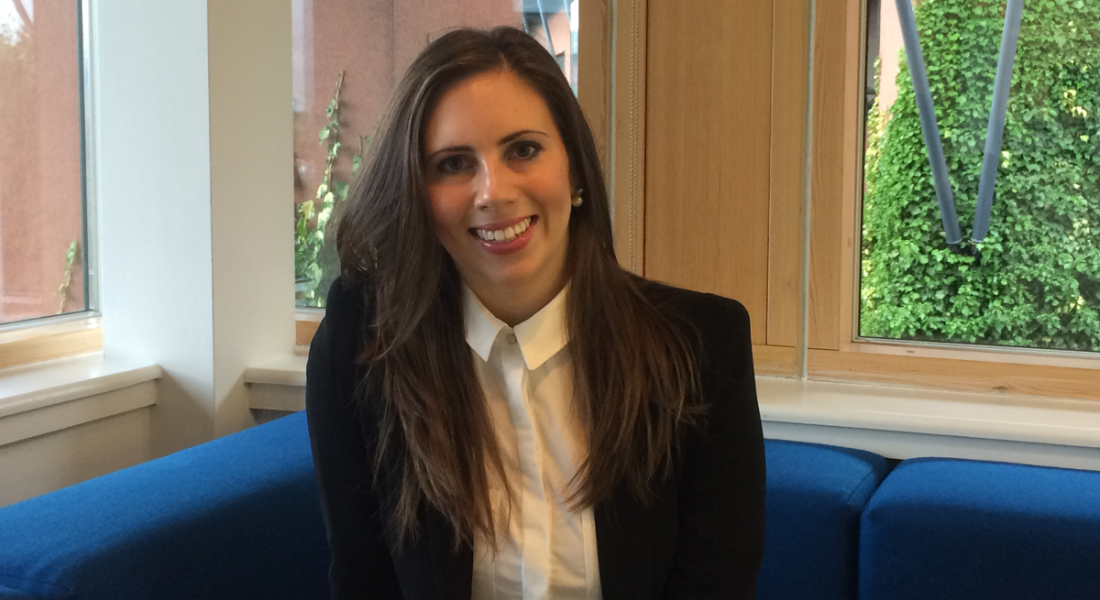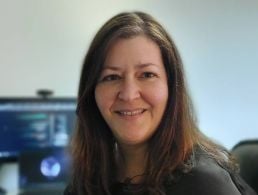One thing they don’t tell you before you start working: your career plans and your career reality don’t always match up.
Dr Catherine O’Connor, a medical science liaison manager at GlaxoSmithKline (GSK), has a background in medicine that was gleaned when studying to become a GP. Little did she know, this background would be put to use on the other side of the prescription book.
What first stirred your interest in a career in pharma?
Training and starting out as a doctor, it hadn’t really occurred to me that there were opportunities beyond the clinical setting.
The move to the pharma industry came directly to me via a headhunting mail on LinkedIn, but it piqued my interest. By then, I already had an idea that life as a GP was perhaps not for me and, despite knowing very little about the pharma industry and even less around the role of medical affairs within it, I was keen to learn more. I soon realised a medical career within pharma was something I was very interested in and there were a number of opportunities to explore.
There’s a great multi-disciplinary aspect to the role. It is fast-paced and multi-faceted, and you are constantly interacting with people – internal stakeholders and, externally, healthcare professionals. The industry is based on medical innovation and R&D, which means I’m still making a big contribution to health and putting my research background to good use.
I love it, and can’t ever see myself going back to practising medicine now.
What steps led you to the role you now have?
I studied medicine at National University of Ireland, Galway and following this, I completed an internship in general medicine and surgery. I gained entry to the Western General Practice training scheme, and worked in general practice for a number of years, in ear, nose and throat, psychiatry, and obstetrics and gynaecology, specifically.
I was heavily involved in research right throughout university. As a student, I led a two-year research project on diabetes, which was published internationally and presented around the world.
I also have a diploma in clinical education, leadership and management, and professional development.
All of this experience to date led me to where I am now: in GSK as a medical science liaison manager, with a focus in respiratory.
Although I loved working as a doctor, long-term I wanted to do something else that would allow me to use my research background, but also medical knowledge, and this career gives me the freedom to do exactly that.
What are the biggest surprises or challenges you have encountered on your career path?
One of the most interesting aspects of the role, which I wasn’t aware of, was how highly regulated the industry is and the extent of regulation that pharma companies have to adhere to. This is a testament to the integrity of the industry as a whole and the great lengths that are taken to maintain high standards in terms of good practice.
I also learned since starting this role that, more than ever, the relationship between the pharma industry and healthcare professionals is crucial to ensure new medicines are developed and delivered to patients.
One of the reasons I was particularly drawn to GSK is that it is leading the way in terms of showcasing how both sides – healthcare providers and pharma – can work together better and more transparently.
At GSK we’ve recognised that it’s not just what we do, but how we do it, and so we’ve introduced a lot of new ways of working that I’ve been really proud to be a part of. For example, traditionally, the pharma industry has always supported continual medical education for doctors, but GSK believe there was a lot more they could do to ensure this support is entirely independent and trusted. We have completely overhauled how we approach this and have launched a series of Independent Medical Education grants, as well as supporting attendance at conferences through independent third parties.
We also do not make any direct payments to doctors to speak on our behalf and, instead, the onus falls on internal medics like me to educate doctors about medicines. These are brave and challenging changes that GSK have made, so it’s an exciting time to be working here.
Was there any one person who was particularly influential as your career developed?
My current manager in GSK, Martijn, is a wonderful role model, and is a beacon of wisdom, knowledge and experience. However, it’s his approach to his team, his work and his nature in general that I greatly admire, and which I really try to emulate.
At GSK, there is a lot of emphasis on professional development and he has helped me greatly on that score, as I am always learning new things, meeting new people and constantly challenging myself.
What do you enjoy about your job?
The variety. No day is the same in medical affairs! I work with internal sales and marketing colleagues, I visit my old colleagues in the clinical setting to deliver expert talks, and I am inextricably linked to up-and-coming research and development. Travelling to the various GSK locations around Europe, and to conferences and meetings, all while working with colleagues across the world to improve outcomes for patients, is very exciting.
The research and development never stops. I am hugely proud to be at the helm of, and part of, the wonderful evolution of medicine and science, especially within GSK’s respiratory business.
This year, GSK launched a first of its kind study with COPD (chronic obstructive pulmonary disease) patients in Salford, Manchester, which measured the effectiveness and safety of a medicine in a real world setting. I’m just back from a global conference in London – the European Respiratory Society Conference – where this study was lauded as groundbreaking.
I love that this exposure to innovation – whether that’s R&D, new medicines or better ways of doing things – can potentially make life better for patients.
The pharmaceutical industry is changing all the time, which means so can my career within it. Needless to say, this brings many challenges. But, as TS Eliot eloquently put it, “If you aren’t in over your head, how do you know how tall you are?”
The challenges fuel the fascination and excitement!
What aspects of your personality do you feel make you suited to this job?
I genuinely get a great buzz from people. In this industry, where there is constant interaction and collaboration with various colleagues, external stakeholders, international colleagues or customers; the value of good people skills is certainly cliché, but is absolutely key for this job.
Also, in a fast-paced environment with deadlines and various ongoing projects – and working with many different colleagues in Ireland and abroad – being deadline-driven and being willing to muck in with a team of people across departments and countries is paramount.
How has GSK supported you on your career path?
In Ireland, and above country-level, support at GSK is always there. In particular, my manager has been incredibly helpful to me in terms of fostering a smooth transition from the clinical arena I was used to into a corporate environment.
The company has been absolutely fantastic in terms of providing expert training for me, and we have an in-house online learning system as there is a huge emphasis on continuous training and education. Personal development is a big part of a career at GSK – no mean feat, given the size of the company.
What advice would you give to those considering a career in this area, or just starting out in one?
I would suggest reaching out to someone who already works in medical affairs to get first-hand, realistic and practical advice on what the job entails on a day-to-day basis. I have had people interested in medical affairs shadow me and this is a fantastic way to get under the skin of the job. In my own experience, I wasn’t aware that a role like this existed when I was training, so I would advise people to do some research.
Now that I do know, I found that pharmaceutical medicine is a specialist training area in Ireland through the RCPI (Royal College of Physicians of Ireland).
The breadth of the industry is extensive, too – regulatory affairs or research and development, for example, are other avenues – and since joining GSK, I have met many doctors, pharmacists and scientists who are in these roles.
Finally, there are many postgraduate courses available relating to the pharmaceutical industry. These might be of interest to someone keen to move into pharmaceuticals. In fact, it may be just the stepping stone needed!
Looking for jobs in tech or science? Check out our Employer Profiles for information on companies hiring right now.




